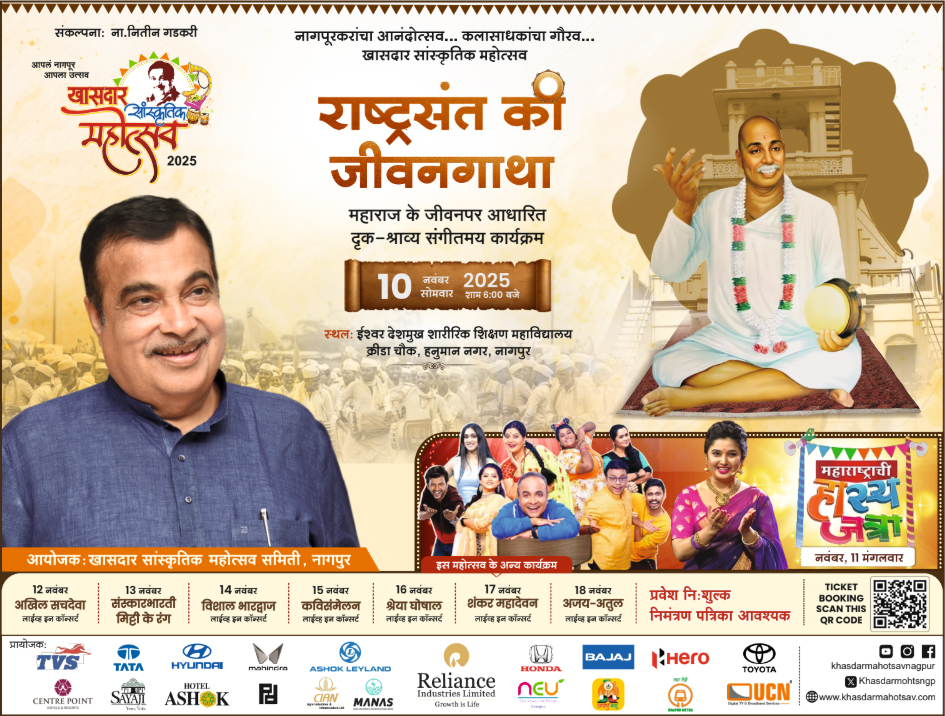Nagpur: “Sustainability can be learnt from rural India as our ancestors were able to live in equilibrium with their vicinity.”
With the progress of Science taking great strides in India, most of human aspirations and dreams could become a reality. However, the stallion jump in this modern development is not without the challenges. Climate change, income inequality and social injustice are three of the big problems of our time.
Dennis Abraham Thazhamon, an expert Financial Software, Capital Markets and Asset Management with multinational companies, dwells on finer points of Sustainable Business Models in India. He says, “Some recent experiments regarding Sustainable Business are a success and some have disrupted the ecology and economy risking human life — the complete ecology. One of the world’s monitoring bodies — United Nations — has stated that Sustainable Development meets the needs of the present without compromising the ability of future generations to meet their own needs.”
Are we really ever thinking of our future generations?
The Business Development Manager with a Masters in International Business ponders over one aspect: “Have we gone blind to the existing science and sustainable business? Sustainable Business is not possible without Sustainable Development which attracts economy and develops a livelihood. Sustainable Businesses not only thrive and grow but simultaneously play a major role in solving some of these big problems which the world is facing at large. We as individuals also can make a huge difference to it.”
While travelling across the “God’s own Country” (Kerala) that got a sound thrashing from Mother Nature, floods that were never witnessed in this part of the world. People are turning a blind eye to certain realities such as temperature rise, water level rise all due to anthropogenic activities and emissions, Dennis lamented.
“It is time for nature to make people think, that there will be no future if things continue the manner people are devising the microeconomics. Global warming though a macroeconomic discussion, there is a need for retrospection on oneself it cannot be macro if micros are not aligned. Now let me speak more for the laity. Let’s take an example of the houses built in Kerala in the past, it was a science in itself which was sustainability developed for sustainable business.”
Indigenous construction:
Dennis Abraham Thazhamon further says, “Houses were built by the lateral brick or stone which is abundantly available locally. It regulates temperature while it is hot externally it is cooler inside. If it is cool outside it would be warmer in the house. The roofs were built such that the natural light and air would make it less depended on the modern air conditioners, a lot of wood was also used. Most of the houses were designed such that the water could collect during rains and could be used throughout the year “the recent jargon is rainwater harvesting” he stated and added well this was etched into the builders and architects of Kerala then, they used to call it “nalukettu and ettukettu.”
“Why is this sustainable? Because this kind of houses did not erupt keeping in mind business (money). On the contrary health, wellbeing and low footprint (then electricity was scarce). Later, businesses evolved around it making it sustainable. Example: A forestation was very common because the wood had a value and replanting trees was the common trend this lead to accretion of soil, water retention, saving natural ecology and ecosystem. This was also healthy as a lot of oxygen was produced, the air was cleaner, also was a medium to keep the temperature under control,” the expert said and in the same breath added similar was with the flooring it was made from wastes, like plant shreds, jaggery, egg shells and other calcium waste, limestone etc.
Elaborating further, Dennis said, “This was a major lively hood of the people in this part of the world before concrete and factory made propositions made its way through propagating that is the best for mankind. On the contrary, it has increased various sickness, increased temperature and everything from floors to the ceiling have to be manufactured. Increasing footprint and using a lot of energy to make and to reside in one of them (life). People need a lot of ACs to control the heat, also needs the energy to light the whole house etc.”
“Now after all the damage the world is thinking how can we make it sustainable? It was always sustainable but the sheer greed for business without the interest of wellbeing of mankind, future seems bleak, if we do not introspect our available options and are rather eager to copy. It reminds me of a quote by Ralph Waldo Emerson. “To be yourself in a world that is constantly trying to make you something else is the greatest accomplishment.”
He asserted that sustainability is the key to success and Sustainable Business totally depends on Sustainable Development. Sustainable development ( individual and social movement) has the ability to create sustainable economics which in turn supports Indian businesses to achieve the goal.
“Now, it is an individual choice, what they want – What they would demand from commerce. Demand drives supply and this can determine how each one of us can contribute to business that is sustainable or destructive. We know and have witnessed, business leaders can change the world, lets give them an opportunity to make the change that would contribute to the wellbeing of mankind,” concludes Dennis Abraham Thazhamon.
– RAJEEV RANJAN KUSHWAHA















